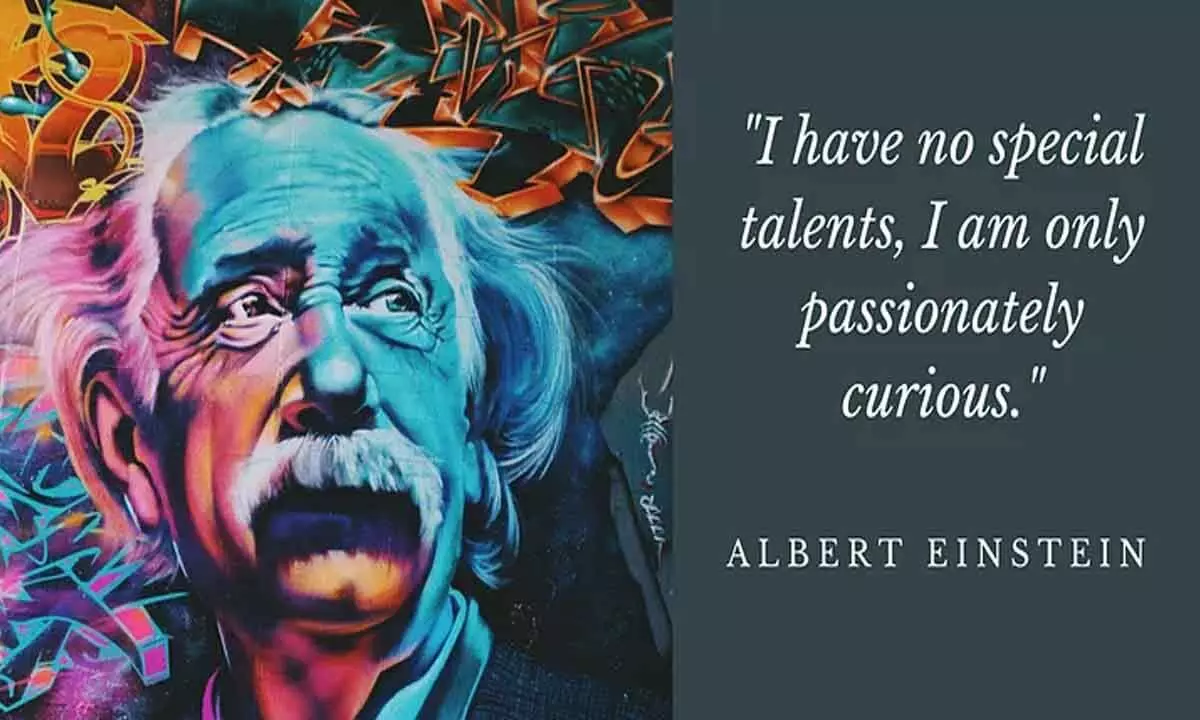The Good And Bad Of Curiosity

The power of curiosity comes from its ability to help us learn and grow. A somewhat undesirable variety of curiosity is the morbid type, which focuses on macabre objects such as death, violence, or other events that may cause harm, physically or emotionally. To illustrate that quality, Aristotle, in his’ ‘Poetics’, states, “We enjoy paintings of objects that in themselves would annoy or disgust us”
“Curiosity,” goes the saying, “killed the cat, but satisfaction brought it back”. Meant, originally, as a warning to people about the dangers of unnecessary investigations, it also highlighted the importance of curiosity as the path to knowledge or truth.
Curiosity, or the desire to explore, and acquire knowledge and skills, is an innate quality among many different species. Apart from human beings, in whom it is common at all ages, from infancy to adulthood, it is observed in many other species, such as apes and cats.
Strongly associated with the various stages of the development of human being, curiosity is, essentially, a desire to learn what does not concern one. The power of curiosity comes from its ability to help us learn and grow. It stops us from becoming obsolete, fills in our blind spots and improves our self-awareness. Finding opportunities to be more curious and seek out information can help one succeed in a number of ways inquisitiveness to work on the
unknown, the hidden and the undiscovered. Scientists, in particular, use it to ask crucial questions by interrogating nature about how phenomena came about, and what the benefit to mankind can be gained through the application of that knowledge.
The Curiosity Approach is a creative and innovative method of supporting child development in the early years, by placing children at the heart of the learning process and providing them with innumerable opportunities to explore, imagine and create.
Curiosity, in a nutshell, is the quest for new knowledge and, according to psychologists, it acts as a preventive shield against anxiety. While anxiety drives fear, curiosity invites wonder. A study, in fact, found, that when one seeks new knowledge, fear and worry take a back seat. A curious mindset can also lead to learning and goal achievement, eliciting a ‘dopamine boost’, or trigger the ‘feel-good’ neurotransmitter, that causes pleasure and joy.
Which is probably the reason why W.H. Davies says, in his poem ‘Leisure’:
“What is this life if, full of care, We have no time to stand and stare”.
In a similar context, a passage, from the chapter ‘Pool of Tears’, in Lewis Carroll’s “Alice’s Adventures in Wonderland” reads, “Curiouser and curiouser!” cried Alice (she was so much surprised, that for the moment she quite forgot how to speak good English); “now I’m opening out like the largest telescope that ever was!” The expression is still used to mean that something is getting increasingly confounding.
A somewhat undesirable variety of curiosity is the morbid type, which focuses on macabre objects such as death, violence, or other events that may cause harm, physically or emotionally. To illustrate that quality, Aristotle, in his’ ‘Poetics’, states, “We enjoy paintings of objects that in themselves would annoy or disgust us”.
The British are known to be a race with a ‘stiff upper lip’, or the ability to display fortitude, and stoicism, in the face of adversity. They are also known for great self-restraint, in expression, and a gift, for irony and the understatement. A well-known trait of their sense of humour is the tendency to mock, at the absurdity of day-to-day life. All this notwithstanding, it is strange why the typical Englishman remains incurious about the most important things, except, strangely enough, for rather trivial issues that in no way concern him.
To quote H.G. Wells, as he writes in, ‘an Englishman looks at the world’, “…. And then, coming to details, about labour, socialism, and modern welfare…. The modern novel, …. The public library…. Divorce, school masters, motherhood, doctors…. The future of the American population...”
Curiosity invariably tends to disturb one’s focus. Distractions, caused by inquisitiveness, can divert the attention of people engaged in activities requiring intense concentration, and affect adversely the rhythm of their performance.
For example, Sunil Gavaskar, the legendary cricketer, also known as the ‘Little Master’ to his fans, was famously unconcerned about his score while batting. It is said that he felt that looking at the score board would needlessly interfere with his rhythm and affect his concentration. I observed a similar trait in my colleague in the administrative service Ramesh Jain. Ramesh was to be operated for a heart bypass surgery and I called on him the evening before the procedure. In an attempt to reassure him, I said, “Ramesh don’t worry. Everything is going to be alright!” With a surprised look on his face, he said, “surely, Mohan, it is for the doctor to worry!” A truly remarkable attitude, so refreshingly different from other patients, in similar situations, who would have been seeking all sorts of information, such as how long the operation would last, what precisely the surgeon would be doing, where would the post-operative care would take place, how long it would be before normal activities can be resumed etc.
In large establishments, such as the bureaucracies, in governments, or corporate houses, it often becomes necessary to restrict access, to vital information, only to those who have the need to possess it in the overall interests of the organisation.
Governments also have a system of classification of files in accordance with the degree of secrecy required to be maintained in regard to the contents thereof. The categorisation comprises many types such as ‘for your eyes only,’ ‘top secret, ‘strictly confidential’ etc. The idea is to prevent access to sensitive information to those who do not have need and whose possession of such information may not be in the public interest.
Here is a story to end this ‘curious’ discussion as a lighter note.
A curious child asked his mother: “Mommy, why are some of your hairs turning grey?”
The mother tried to use this occasion to teach her child: “It is because of you, dear. Every bad action of yours will turn one of my hairs grey!”
The child replied innocently: “Now I know why grandmother only has grey hairs on her head.”
One, therefore, needs to be careful of what one tells a child, lest one accidentally score a self-goal!
(The writer is formerly Chief Secretary, Government of Andhra Pradesh)









